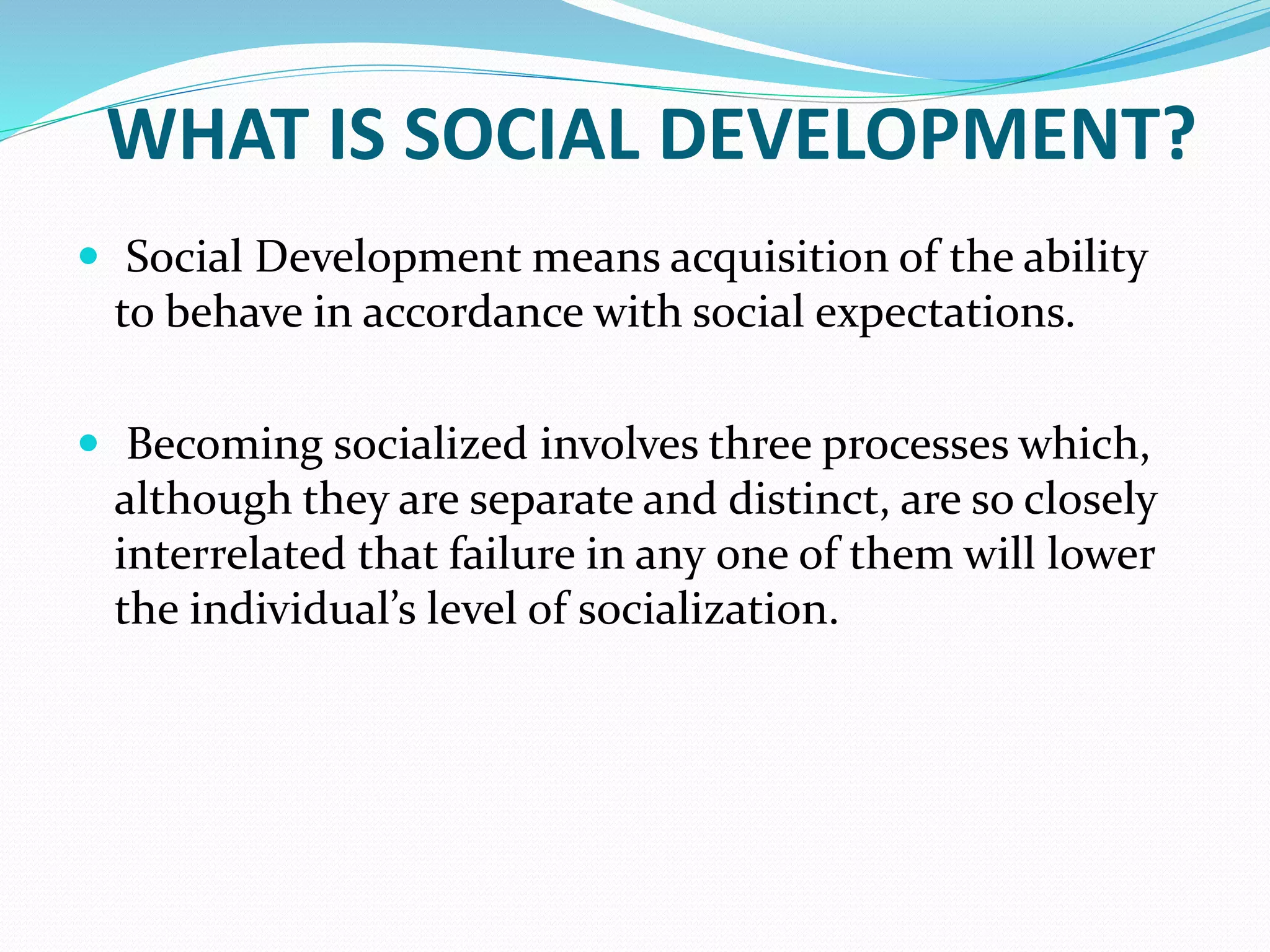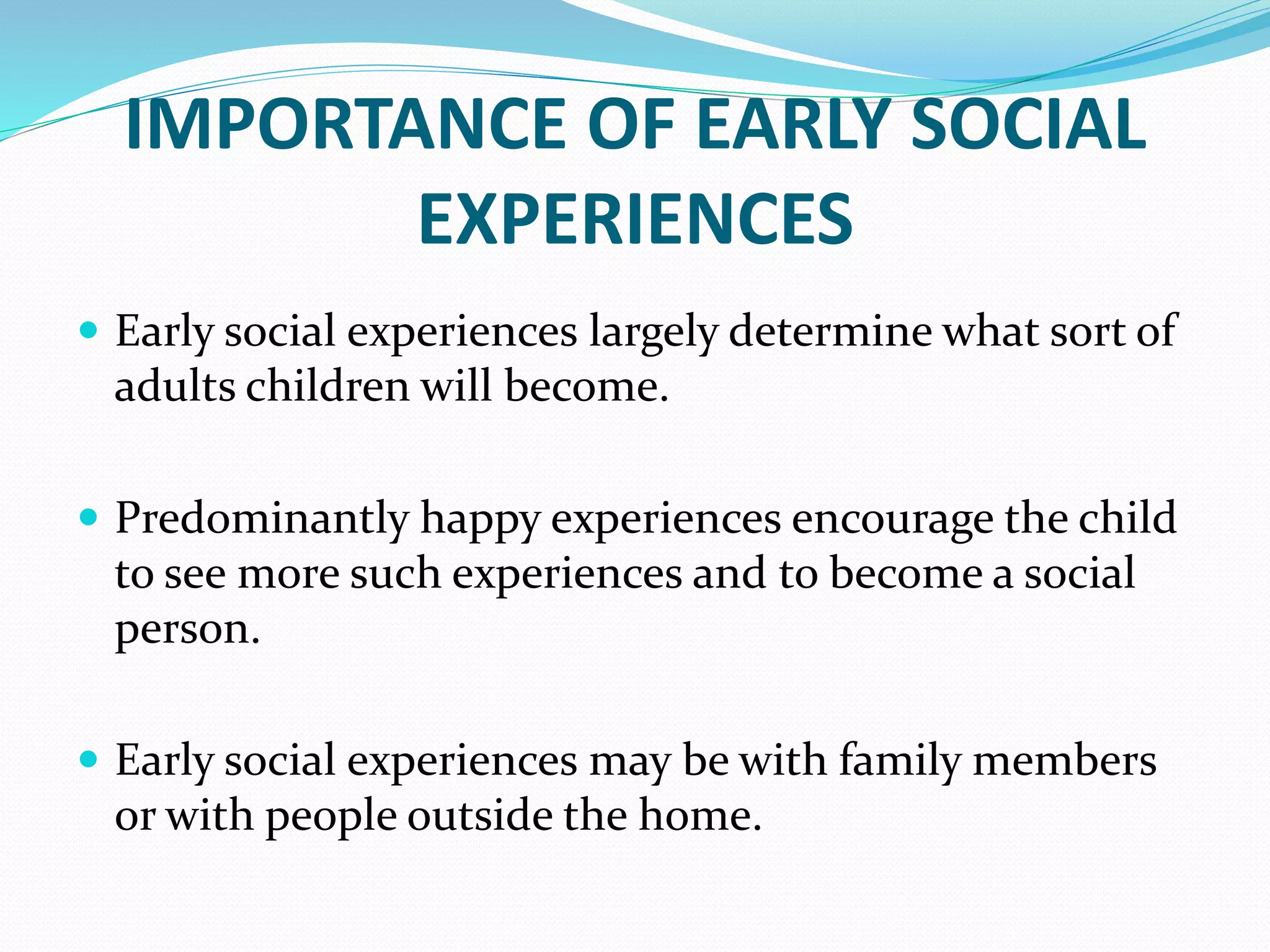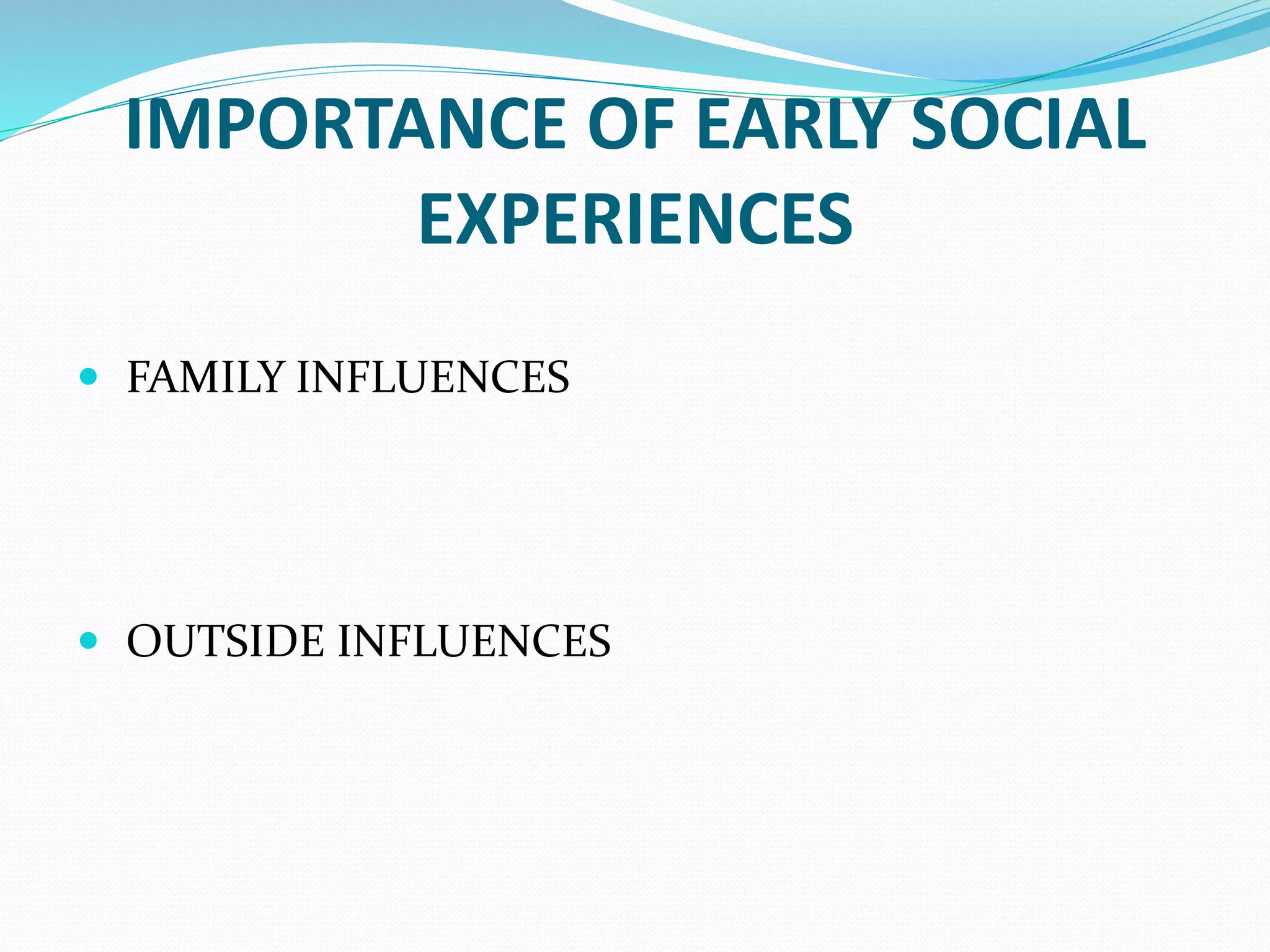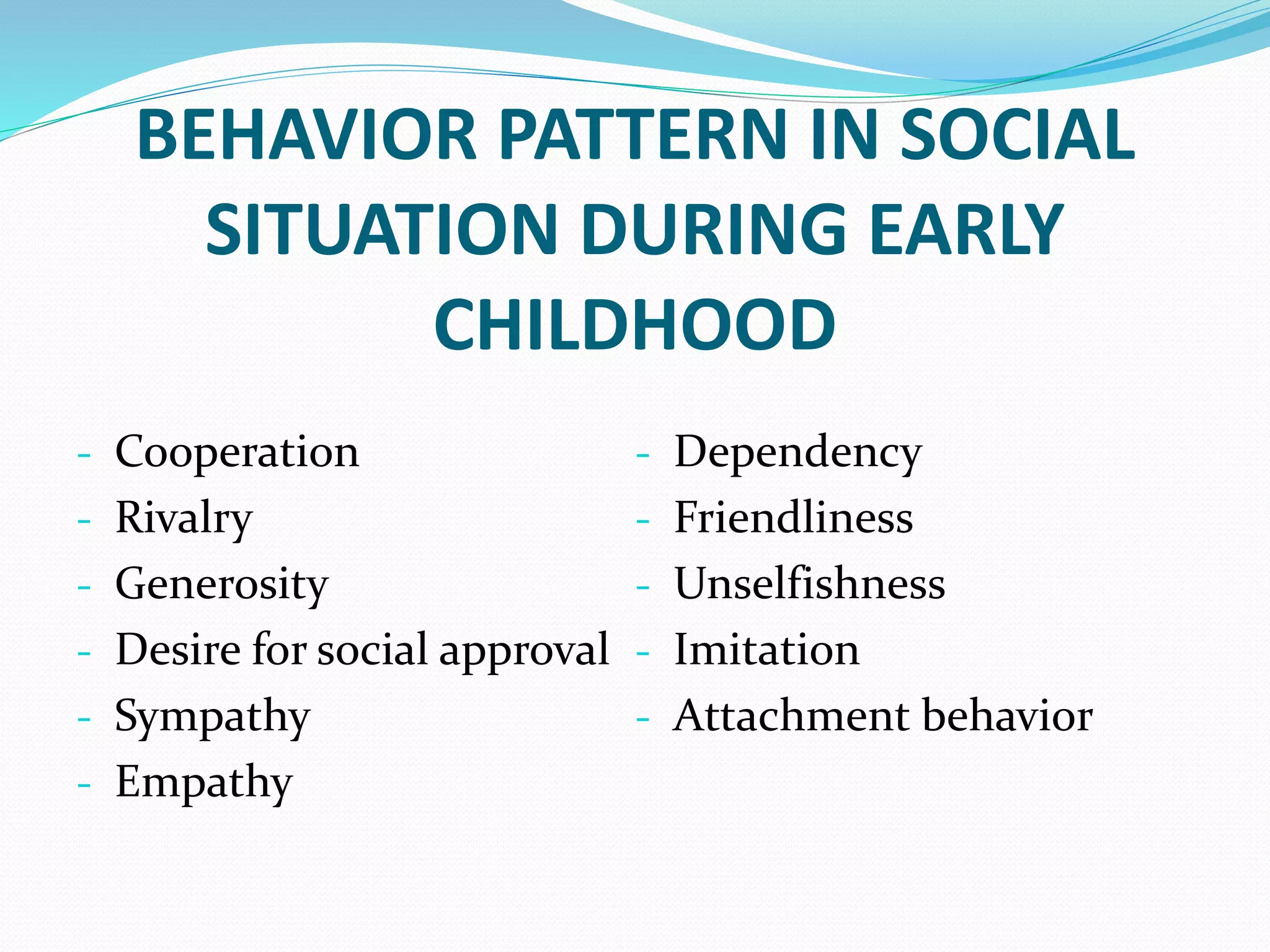Social development involves learning social skills that allow children to interact appropriately with others, play social roles, and develop social attitudes. Early social experiences shape whether children grow up to be well-adjusted socially or have difficulties forming relationships. As children progress through childhood and puberty, their social development and relationships with peers become increasingly important influences on their behavior and identity formation. Problems in social development can impact a child's emotional, cognitive and personality development.

























